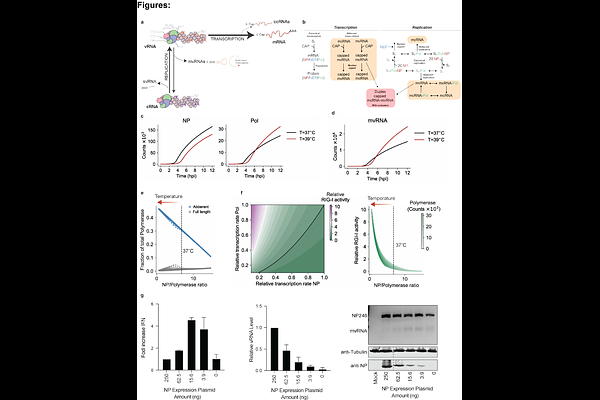Temperature-dependent modulation of aberrant influenza A virus RNA synthesis affects innate immune signaling

Temperature-dependent modulation of aberrant influenza A virus RNA synthesis affects innate immune signaling
Bisht, K.; Weilandt, D.; Lamb, C.; Elshina, E.; Myhrvold, C.; te Velthuis, A. J. W.
AbstractFever during influenza A virus (IAV) infection is triggered by the innate immune response. Various factors contribute to this response, including IAV mini viral RNAs (mvRNA), which trigger RIG-I signaling when their replication and transcription are dysregulated by template loops (t-loop). It is presently not well understood whether the fever response to IAV infection impacts subsequent viral replication and innate immune activation. Here we show that IAV infection at temperatures that simulate fever leads to increased mvRNA synthesis and antiviral signaling. Mathematical modeling and experimental analyses reveal that differential IAV nucleoprotein and RNA polymerase production underlies the increased mvRNA level. Moreover, at the higher infection temperature mvRNAs with dysregulating t-loops contribute most to the innate immune activation. We propose that fever during IAV infection can establish a positive feedback loop in which elevated aberrant RNA synthesis and innate immune activation may contribute to the dysregulation of cytokine production.